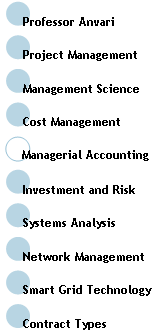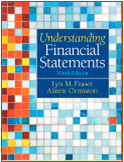


|
education & consulting in |

|
Managerial Accounting |

|
Cost Accounting |

|
This course discusses concepts, techniques, and latest development in production, product, process, and activity costing. The discussion includes cost accounting and analysis techniques useful in various industries and differing circumstances. Cost budgets and cost standards are illustrated as tools for planning, performance and managerial control. After taking this course, students are expected to have a broader perspective on the production cost determination as a critical element in price setting and performance evaluation. |


|
|
|
|
1 |
|
|
2 |
|
|
3 |
|
|
4 |
|
|
5 |
|
|
6 |
|
|
7 |
|
|
8 |
|
|
9 |
|
|
10 |
|
|
11 |
|
|
12 |
|
|
13 |
|
|
14 |
|
|
Understanding Financial Statements
|
|
1 |
|
|
2 |
|
|
3 |
|
|
4 |
|
|
5 |
|
|
6 |
|
Advanced Accounting course examines accounting topics for partnerships, mergers, acquisitions, business combinations, and discusses other advanced topics beyond the topics introduced in the first-year prerequisite courses, such as foreign currency translation and partnership accounting. It is designed to prepare students to interpret and analyze financial statements effectively. Therefore, prior to taking this course, students are expected to have a sound grasp of the basics of financial accounting.
This course also explores in a greater depth financial reporting topics introduced in Advanced Accounting I as well as other transactions not covered in that prerequisite course. Special emphasis is put upon specific problem solving in accounting for partnerships, business combinations and consolidations, inter-company transactions, and other aspects of inter-corporate stock ownership necessary for the preparation of consolidated financial statements. Intensive class participation is required for the success of the learning process. |
|
This course also provides an explanation to the determination, development, and uses of internal accounting information needed by business management to satisfy customers in conjunction with continuous cost control. This course examines basic principles of cost management and other related issues such as manager performance evaluation, management activity and process, and applications of activity-based costing and just in time manufacturing. Topics include contemporary cost accounting; activity based management; strategic cost management; capital investment decision; pricing and revenue analysis; and balanced scorecard. The aim of this course is to prepare students with comprehensive understanding on the benefits of cost management in managing corporate organizations. |
|
|
|
|
1 |
|
|
2 |
|
|
3 |
|
|
4 |
|
|
5 |
|
|
6 |
|
|
7 |
|
|
8 |
|
|
9 |
|
|
10 |
|
|
11 |
|
|
12 |
|
|
13 |
|
|
14 |
|
|
15 |
|
|
16 |
|
|
17 |
|
|
18 |
|
|
19 |
|
|
20 |
|
|
21 |
|
|
22 |
|
|
23 |
|
Accounting Theory |
|
This course discusses the importance of theory-building explanation and prediction of the usefulness of accounting information in economic decision making for financial information users. Topics include the history of accounting, philosophy of accounting theory, normative accounting theory, and positive accounting theory. The objective of this course is to provide knowledge to students in order to understand contemporary accounting theory. |
|
Ch |
|
|
1 |
|
|
2 |
|
|
3 |
|
|
4 |
|
|
5 |
|
|
6 |
|
|
7 |
|
|
8 |
|
|
9 |
|
|
10 |
|
|
11 |
|
|
12 |
|
|
13 |
|
|
|
1 |
|
|
2 |
|
|
3 |
|
|
4 |
|
|
5 |
|
|
6 |
|
|
7 |
|
|
8 |
|
|
9 |
|
|
10 |
|
|
11 |
|
|
12 |
|
|
13 |
|
|
14 |
|
|
15 |
|
|
16 |
|
|
17 |
|
|
18 |
|
|
19 |
|
|
20 |
|
|
21 |
|
|
22 |